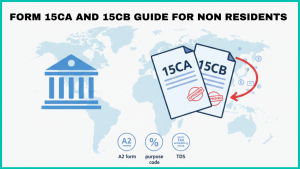How can an NRI invest in India’s mutual funds? — A Complete Guide (2025)

You can invest in Indian mutual funds as an NRI after you complete NRI KYC, use an NRE or NRO bank account, and follow RBI, SEBI and tax rules. You usually do not need PIS for mutual funds. This guide explains each step, tax rules, repatriation, common issues, and useful links so you can act with confidence.
This guide shows you, step by step, how to start investing in India’s mutual funds as a non-resident Indian (NRI). You will learn which bank account to use, what documents you need for KYC, how to place a SIP or lump-sum order, what tax you must pay, how to repatriate money, and how to avoid common mistakes. You will also find short checklists, templates, and official links to RBI, SEBI, Income Tax, and AMFI pages.
Who is an NRI?
An NRI (Non-Resident Indian) is an Indian citizen who lives outside India and meets the non-resident test under Indian tax rules. So this guide is for non residents (both NRIs and OCI card holders) who want to invest in Indian mutual funds. It also helps OCI cardholders and foreign citizens of Indian origin who want to understand the steps. If you live in the United States, United Kingdom, Canada or Australia, read the country-specific notes later for extra steps and limits.
How mutual funds work for NRIs — a short explanation
Mutual funds pool money from many investors to buy stocks, bonds, or other assets. NRIs can invest in most Indian mutual funds on a repatriable or non-repatriable basis. If you invest from an NRE or FCNR account, the investment is usually repatriable. If you use an NRO account, repatriation is possible but needs extra paperwork. The Reserve Bank of India (RBI) has rules on accounts and repatriation; check RBI for official details:
RBI — Accounts for Non-residents (NRE / NRO / FCNR)
Start here — quick checklist
- Get PAN (Permanent Account Number). PAN is mandatory for mutual funds.
- Open an NRE or NRO account in India. Use NRE for repatriable foreign income; use NRO for income from India.
- Complete mutual fund KYC for NRIs (passport, overseas address proof, PAN, bank proof).
- Check that the AMC or platform accepts investors from your country of residence.
- Decide SIP or lump sum and pick funds that match your goal and risk level.
Which bank account should you use: NRE, NRO or FCNR?
Use an NRE account if you want full repatriation. Money you put into an NRE account is usually free to move abroad. Use an NRO account for income earned in India, like rent or dividends. FCNR keeps funds in foreign currency and is rarely used directly for mutual fund purchases. For official rules and limits, see the RBI guidance on non-resident accounts:
RBI — Accounts for Non-residents (NRE / NRO / FCNR)
KYC and documents — step-by-step so your KYC is accepted
Mutual fund KYC for NRIs is similar to resident KYC but needs passport-based ID and overseas address proof. Use this publish-ready list on your site or send it to clients:
Common documents
- PAN card copy (mandatory).
- Passport copy (valid).
- Overseas address proof (utility bill, driving licence, residence proof).
- Indian bank proof — cancelled cheque or statement for your NRE/NRO account.
- Recent passport photo (digital file).
- OCI/PIO card copy if applicable.
- FATCA / tax residency declaration and foreign tax ID if requested.
How to complete KYC
- Use video KYC if the AMC/platform supports it for faster processing.
- Or submit physical documents to the AMC, distributor, or an authorised bank branch.
- Some NRIs use a Power of Attorney (POA) to handle paperwork. Check AMC rules for POA acceptance.
For legal KYC rules and full guidance, link to SEBI’s KYC circular:
SEBI — KYC norms for the securities market (Master Circular)
Do NRIs need PIS to buy mutual funds?
No. PIS (Portfolio Investment Scheme) is for NRIs who buy listed stocks directly through a broker. Mutual funds are not direct equity under PIS. Most mutual funds accept NRI investments on repatriable or non-repatriable basis after KYC. If you later want to buy stocks directly, you will need PIS through an authorised dealer per RBI rules:
RBI — Official site (PIS and non-resident securities guidance)
How to pick a platform or AMC that accepts NRIs
Not every platform accepts NRIs from all countries. Fund houses set their own country lists because of FATCA and local rules. Before you start KYC, check these points:
- Does the AMC accept investors from your country of residence? Some restrict the United States or Canada.
- Does the platform support video KYC for NRIs?
- Can the platform link to your NRE/NRO account and accept NACH mandates for SIPs?
- Will the platform issue Form 16A or other TDS certificates if tax is deducted?
AMFI provides investor tools and fund house contacts that help confirm acceptance:
AMFI — Association of Mutual Funds in India
Step-by-step investment flow — a simple timeline
Preparation (1–7 days)
- Get PAN and passport copies ready.
- Open and fund your NRE or NRO account. Account opening may take a few working days.
Onboarding (3–14 days)
- Submit KYC via video or physical mode.
- Link your Indian bank account with the mutual fund folio.
- Get a folio number or set up a demat account if you choose demat mode.
Placing the first order (same day after KYC approval)
- For SIP: set up a NACH mandate or standing instruction from your NRE/NRO account.
- For lump sum: transfer funds from your NRE/NRO account and place the order on AMC site or via distributor.
After investment (ongoing)
- Save confirmation and the folio number.
- Check e-statements and NAV updates.
- Keep remittance and bank proofs for FEMA and tax compliance.
Redemption and repatriation
To repatriate proceeds, follow RBI rules and your bank’s process. Investments made from NRE/FCNR accounts are generally repatriable. If you used an NRO account, repatriation is allowed within limits and with documentation and tax clearance. See RBI guidance for official rules:
RBI — Accounts and repatriation FAQ
Types of mutual funds and what suits NRIs
Choose funds based on your goal and timeline. Here are the main types:
- Equity funds — higher growth potential, higher risk.
- Debt funds — lower risk, different tax rules.
- Hybrid funds — a mix of equity and debt; tax depends on equity share.
- Index funds & ETFs — low cost, follow market indices.
- International funds / FoFs — invest overseas; check AMFI/SEBI updates before buying.
Tax rules — what NRIs must know
Basic rule: NRIs pay tax in India on income sourced in India. Capital gains and dividends from mutual funds are taxable in India. Tax depends on fund type (equity or non-equity) and holding period. You may also need to file an Indian tax return to claim refunds or treaty benefits. See the Income Tax Department for official guidance:
Income Tax Department — FAQs for non-residents
TDS on mutual fund payouts
AMCs may deduct TDS for NRIs on dividends or capital gains as per law. TDS rates differ for equity and non-equity funds and by the nature of income. If TDS is deducted, you should receive Form 16A from the AMC to show tax paid.
DTAA — tax treaty benefits
If your resident country has a Double Taxation Avoidance Agreement (DTAA) with India, you can often claim credit for tax paid in India when you file taxes at home. Keep Form 16A and bank proofs to claim treaty benefits.
Example — simple publishable tax case
Example: You invest ₹100,000 in an equity fund and redeem after 20 months. Equity long-term capital gains (LTCG) rules apply if holding period and limits are met. Tax rates and thresholds change over time, so always check the Income Tax Department pages for current tables.
Income Tax Department — Official site
Repatriation — how to move money back home
If you invested from an NRE or FCNR account, repatriation of principal and returns is usually allowed. If you used an NRO account, repatriation is allowed up to USD 1 million per financial year, subject to documentation and tax clearance. Keep remittance proofs and bank statements as evidence of source of funds and compliance with FEMA rules. See RBI for official limits and steps:
RBI — Repatriation rules and FAQ
FATCA / CRS and tax residency reporting
Mutual funds will ask for your tax residency and tax ID for FATCA and CRS reporting. Provide your foreign tax ID and sign the FATCA declaration if asked. Giving wrong details may cause account limits or blocking by the AMC.
Demat vs regular folio — which to choose
You can hold mutual fund units in a regular folio with the AMC or in demat form in a demat account. Demat is useful if you want all holdings in one place or if you trade ETFs. Regular folios are simpler for SIPs and many retail investors choose them.
SIP, lump sum, STP and SWP — short advice
SIP (Systematic Investment Plan) helps average your cost and suits regular remittances. Lump sum may be best when you have a large repatriable amount to invest. STP (Systematic Transfer Plan) moves money between funds. SWP (Systematic Withdrawal Plan) gives a regular payout. Consider currency risk — returns in INR will change when you convert to your home currency.
Fees and costs to list
- Expense ratio (fund management fee).
- Exit load (if you redeem early).
- Transaction charges on some platforms.
- Brokerage and depository fees for ETFs in demat.
- Bank remittance and foreign exchange conversion fees.
- Tax and TDS which affect net returns.
Fund selection checklist — publish-ready
- Define your investment goal and horizon.
- Decide your risk tolerance: high, medium, low.
- Choose fund type (equity / debt / hybrid) to match goal.
- Check fund manager track record and AMC reputation.
- Look at AUM and expense ratio.
- Note exit load and any lock-in (ELSS has lock-in).
- Compare past performance with the benchmark — do not rely only on past returns.
- Review tax treatment for NRIs.
Common problems NRIs face and how to avoid them
- KYC rejection: check document format, passport validity and name match. Send correct address proof to AMC.
- SIP failures: confirm NACH mandate and maintain sufficient balance in NRE/NRO.
- Repatriation delays: keep remittance proofs and tax documents ready for the bank.
- Platform country limits: verify acceptance before starting KYC to save time.
Nomination, succession and estate planning
Always add a nominee to your folio and keep nominee details updated. NRIs should plan for cross-border estate matters because Indian succession laws and foreign laws can differ. Keep a copy of your folio, nomination, POA (if used), and bank records in a safe place.
Country-specific notes
United States (US-resident NRIs)
US tax rules and FATCA add complexity. Some Indian fund houses restrict direct investment by US residents. You may need specific paperwork or must consult a US tax advisor before investing. Confirm acceptance with the AMC.
United Kingdom, Canada, Australia
Most AMCs accept NRIs from these countries, but check platform onboarding and local tax rules. Claim credit for taxes paid in India under DTAA where allowed. Use AMFI and Income Tax Department links for general treaty references.
Checklist you can paste or offer as a PDF
You can link your downloadable checklist from here. Replace the URL with your real file path or hosting URL:
Download: NRI Mutual Fund Checklist (PDF)
Sample templates — copy ready
Sample KYC submission email
Subject: KYC documents for NRI mutual fund account
Hi team,
I am an NRI and want to complete KYC for mutual fund investments. Attached: PAN, passport, overseas address proof, NRE account statement and photo. Please confirm next steps and expected timeline.
Thanks,
[Your name]
Sample POA note
If you cannot be present, you may sign a limited Power of Attorney to let someone complete paperwork in India. Confirm with the AMC whether they accept POA and what notarisation is needed.
Troubleshooting quick steps
- If KYC is rejected: correct the document type, ensure PAN and passport names match, and resend.
- If SIP fails: check NACH mandate activation and bank balance.
- If repatriation is delayed: provide remittance proof and tax clearance to the bank.
- RBI — Accounts for Non-residents (NRE / NRO / FCNR)
- SEBI — KYC norms (Master Circular)
- Income Tax Department — FAQs for non-residents
- AMFI — Investor resources
How to keep records — simple list
- Save KYC and PAN copies.
- Keep remittance proofs and bank statements showing source of funds.
- Keep e-statements and transaction confirmations from AMCs.
- Keep Form 16A or TDS certificates from AMCs for tax reporting.
- Retain records for at least 6–8 years for tax and FEMA checks.
Short FAQ (for readers)
Can NRIs invest in Indian mutual funds?
Yes. NRIs can invest after completing KYC and using NRE/NRO/FCNR accounts as per RBI rules. Confirm AMC acceptance for your country.
Do NRIs need PIS to buy mutual funds?
No. PIS applies to direct equity. Mutual funds usually do not require PIS.
How are mutual fund gains taxed for NRIs?
Gains are taxable in India. Tax rates depend on fund type and holding period. File ITR if needed to claim refunds or treaty benefits.
Can I repatriate redemption proceeds?
Yes — if invested from NRE/FCNR accounts, repatriation is usually allowed. NRO repatriation has limits and paperwork; banks follow RBI rules.
Which funds can I buy from abroad?
Most open-ended mutual funds accept NRI investors after KYC. Some fund houses restrict certain countries; check with the AMC before KYC.
Your next steps:
You can invest in Indian mutual funds as an NRI. Start with PAN and an NRE or NRO account, complete KYC, check platform country rules, understand tax and repatriation, and keep clear records. Add the PDF checklist and FAQ schema to this page to make it easy for readers to act. For official rules, use the RBI, SEBI, Income Tax, and AMFI links above.






